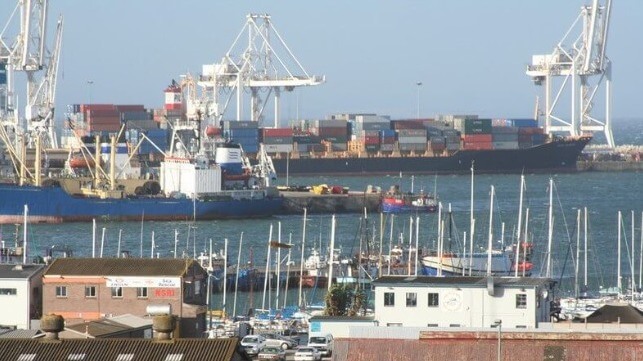NGOs Oppose Plan to Lift Bunkering Ban in S. Africa's Algoa Bay

Environmentalists and conservationists in South Africa have opposed plans by the government to lift a ban on bunkering services off the coast of Port Elizabeth (Gqeberha) over concerns that a return of ship-to-ship fuel transfer poses dangers to the rich marine biodiversity.
Just days after the South African Maritime Safety Authority (Samsa) announced it will lift the moratorium on new licenses for fuel ship-to-ship bunkering in Algoa Bay, several organizations have come out to oppose the move, warning that it poses risks to the environment. In late January, Samsa announced that starting February 1, bunkering services providers can start applying for bunkering services operating licenses in Algoa Bay. The moratorium on the awarding of licenses is set for lifting on April 1.
The moratorium was imposed in 2019 following bunker spills, and its removal opens the door for operators to apply for five-year bunkering authorizations in Algoa Bay and other parts of the country.
“We are confident that the reopening of the bunkering sector will bring much needed economic spin offs and relief to the region and country as a whole,” said Tsepiso Taoana-Mashiloane, Samsa acting CEO.
Environmentalists and conservationists are opposed to the lifting of the moratorium, citing the risks involved and the proximity to foraging and breeding grounds of endangered marine species like the iconic African penguin.
A coalition of environmental organizations, the Bunkering Environmental Working Group, says that judging by past cases of oil spills, the government will be endangering Algoa Bay's marine biodiversity by allowing bunkering services. Over the past six years, three oil spills have occurred as a direct result of fuel ship-to-ship bunkering.
“The impact of oil pollution on marine life must not be underestimated. Research has shown that in the long term, African penguins that were oiled, cleaned and released have lower breeding success than unoiled birds,” said the organizations in a petition.
The petition adds that Algoa Bay is a marine biodiversity haven recognized by the declaration of the Addo Elephant National Park Marine Protected Area.
The bay's St Croix Island previously held the largest African penguin breeding colony in the world, and nearby Bird Island currently holds the world’s largest Cape gannet breeding colony, with two-thirds of the global population breeding at this site.
The African penguin population is declining at an alarming rate due to anthropogenic threats, including oil pollution. A case is St Croix Island, which is the closest island to bunkering activities and has suffered an 80 percent decline in the population of African penguins over the past five years.
Over the period, vessel numbers have more than doubled in the bay, with bulk carriers having increased more than threefold. Vessel activity has been concentrated in shipping lanes and anchorages, where bunkering services are located. These sites overlap important foraging areas for penguins from St Croix Island.
Apart from the impact of oil spills, scientists are investigating the effects of marine noise pollution associated with the bunkering activities.
“It is crucial that decision-making regarding bunkering be informed by a proper understanding of the full variety of risks that the activity poses to the sensitive ecosystem and species in Algoa Bay and the potential for mitigating these risks,” noted the petition.
Top image: Port Elizabeth's inner harbor (Frans-Banja Mulder / CC BY 3.0)
No comments:
Post a Comment